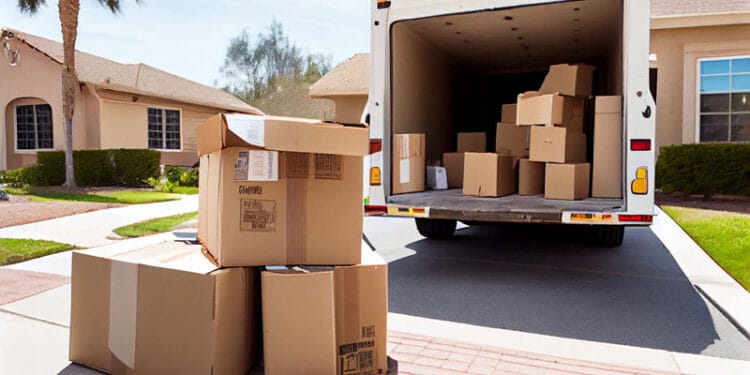The overall success of the relocation depends on careful planning, including delays in your plan, and preparing for unforeseen circumstances. But we are all humans, so we may overlook things and make mistakes. Some of the errors can be seen as minor inconveniences, but there are four critical errors that can lead to increased costs, delays, and unnecessary stress. To prevent them, try to:
Thoroughly research your future moving company
Entrusting your possessions to an unreliable or fraudulent moving company can result in damaged or missing items, significant financial losses, and legal disputes. Some movers might give low initial estimates but inflate the price later, while others may mishandle or even lose your belongings. Additionally, long-distance moves offer limited recourse once the movers are on the road. To avoid that, thoroughly vet potential moving companies. Check for proper licensing, insurance, and reviews on trusted platforms like the Better Business Bureau (BBB) or verified customer reviews to hire professional long distance movers Vancouver. Confirm the company’s Department of Transportation number for legitimacy.
Pack only essential items

Long-distance moves are typically charged based on the weight of your items or the space they occupy in the truck. Bringing along items you no longer need or use means higher moving costs and added stress in organizing, packing, and unpacking. Add delayed packing timelines to that. To avoid this situation, use the move as an opportunity to get rid of old, unused, or broken items by selling or discarding them. Be strategic about what you bring with you, focusing only on essentials and valuable items that are hard to replace.
Be sure to plan for delays
Long-distance moves are subject to various factors that can slow down progress, including weather conditions, logistical issues, or unforeseen traffic problems. Additionally, your belongings might not arrive at your new home immediately, especially if the moving company has multiple stops along the route. Not planning for potential delays can leave you stranded without your belongings or without essential services set up at your new home. Prevent that by building a buffer into your moving timeline by expecting delays and planning for them. Carry essentials (like clothing, documents, and toiletries) in a personal bag or suitcase, just in case your belongings don’t arrive on time.
Cover your move by insurance
Long-distance moves increase the risk of damage to your belongings, and relying solely on the basic coverage provided by the moving company can leave you vulnerable. Basic coverage often compensates only a small fraction of the item’s actual value, which may not be sufficient if high-value or fragile items are damaged. Without adequate insurance, any damage or loss of your belongings during the move could lead to significant financial losses.
Try to review the moving company’s insurance options in advance and consider purchasing full-value protection if necessary. You can also explore third-party insurance providers for more comprehensive coverage. Make sure to declare any high-value items in advance to ensure they are covered under the insurance plan.


